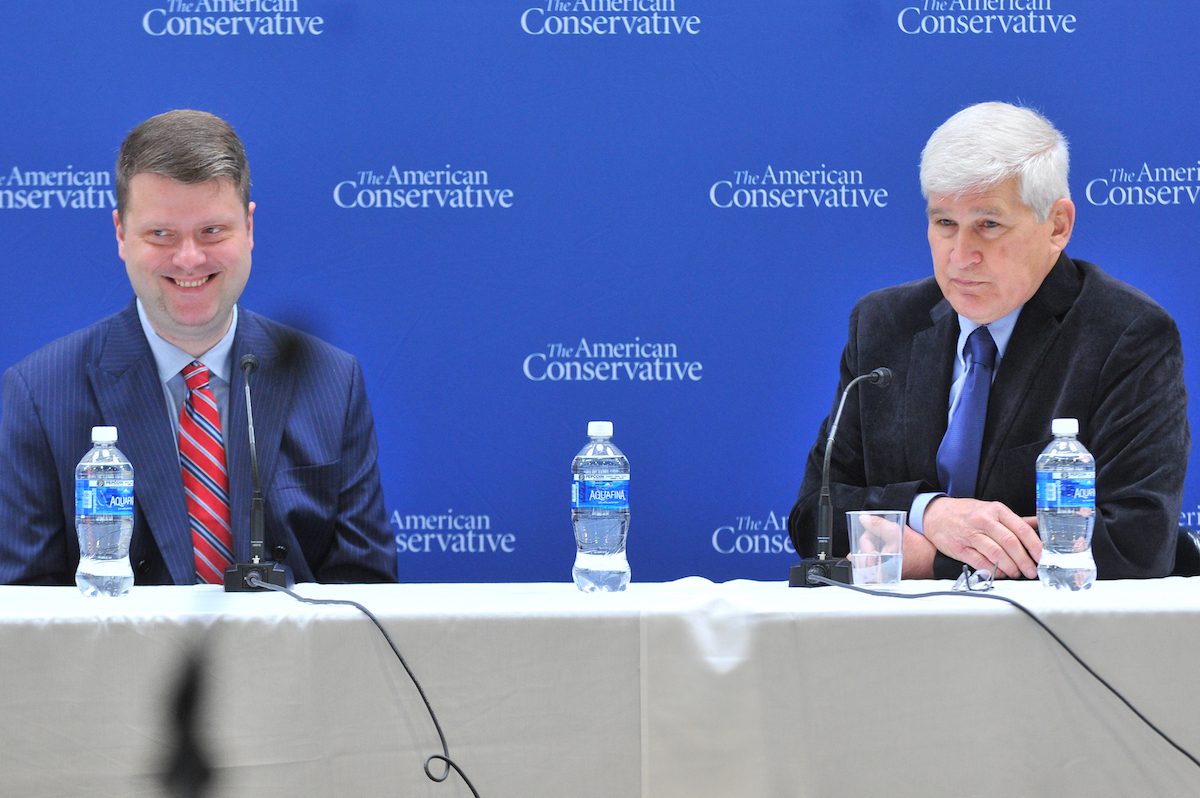Restraint and the Evils of War

Quincy Institute president and TAC contributor Andrew Bacevich spoke on the None of the Above podcast last week about U.S foreign policy. The entire conversation is worth listening to, but there is one quote from Bacevich near the end that sums up what the Quincy Institute is for and why an institution dedicated to foreign policy restraint is so important.
Bacevich said this:
Bacevich: "We're against war, because we think war is evil. There are circumstances when war is necessary, but by and large war is evil and therefore it ought to be a primary goal of U.S. foreign policy to avoid war and promote peace." https://t.co/nhpGQCFBFi @QuincyInst
— Daniel Larison (@DanielLarison) December 16, 2019
This statement underscores the point that Wertheim and Moyn were making in their article over the weekend in their rejection of forever war: war has become normalized and peace has been turned into the exception when it should be the other way around. Baecvich’s emphasis on the evil of war here is important because there is usually great reluctance in the U.S. to acknowledge that war is a great evil. Perversely, the moralizing tendency in our foreign policy debates encourages people to endorse wars as vehicles for doing good, and that in turn encourages political leaders and policymakers to tout military options as desirable and even laudable things. When we allow ourselves to forget that war is evil, we do not weigh the consequences of war with sufficient seriousness and gravity, and we treat the decision to unleash death and destruction on other people as just another “option” that is far too easily selected.
One of the most pernicious aspects of our foreign policy debate is the tendency to conflate support for military options with morality. Advocates for war frequently wrap up their appeals in the rhetoric of “values” and seek to cast skeptics of military action as being either amoral or in league with villains. In truth, the burden of proof rests with the advocates of using force, and they are the ones that should be expected to clear a very high bar to justify the destructive course of action they favor. Today there is a tremendous bias in favor of “action,” and that action is more often than not military action. Advocates for restraint need to make Americans understand that war is both a moral and a policy failure, and we need to explain how our current foreign policy makes frequent unnecessary wars much more likely. War is evil and it is very rarely necessary, and the only time when the U.S. should be at war is when it has no other choice. A government that chooses to wage war when it doesn’t have to commits a terrible injustice, and we should strive to keep our government from doing that. Our goal should be to make Americans understand that wars of choice are not only undesirable but also profoundly wrong.
Comments